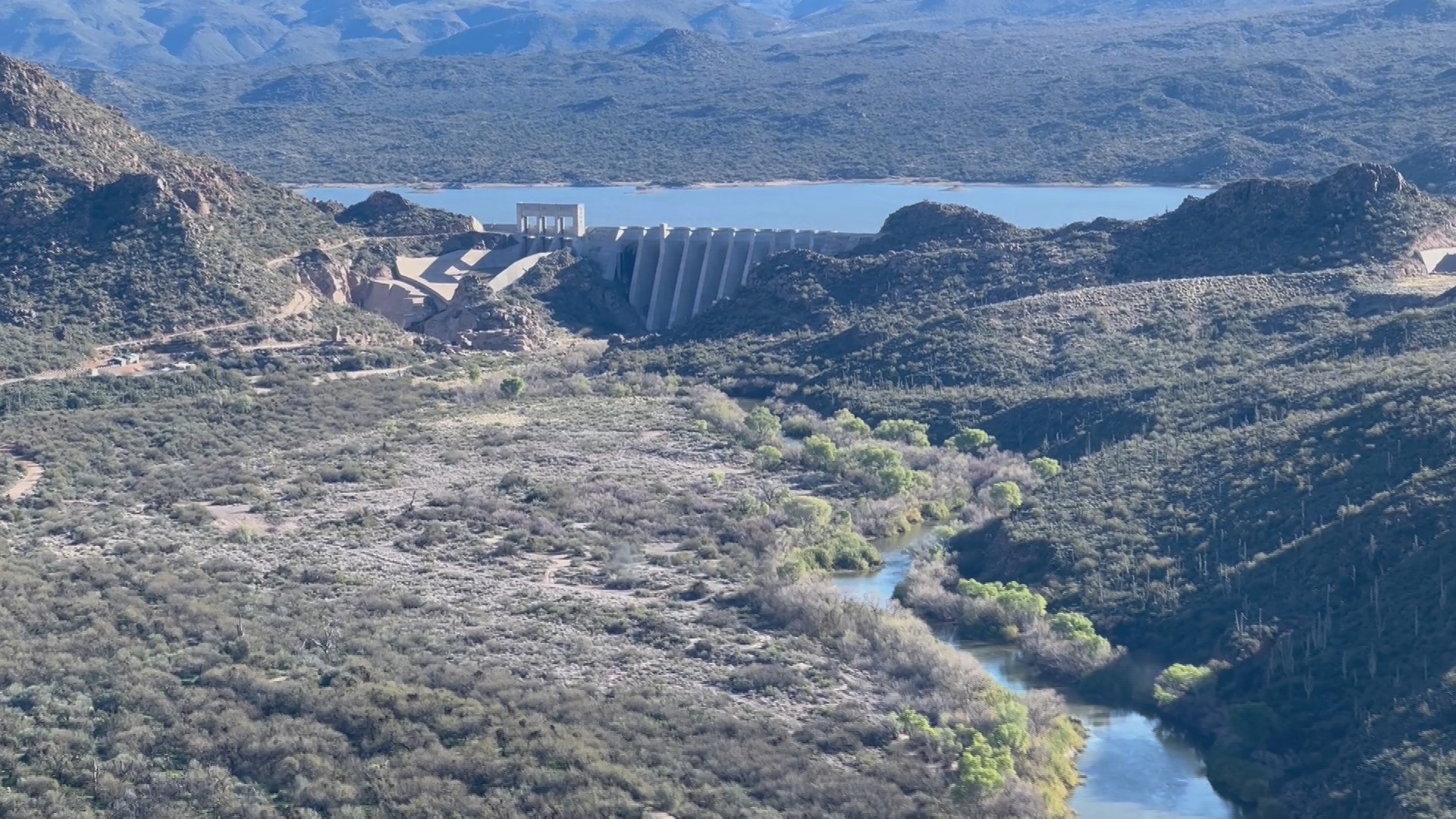WASHINGTON D.C., DC — Rivers and streams are usually easy to spot: Running water carving and cutting its way through the land.
Arizona's streams, like many other things in the state, are an outlier.
More than 95% of the state's waterways are considered "ephemeral" streams, according to the Environmental Protection Agency (EPA). Rather than continuously flowing with water, ephemeral streams only run wet after a heavy storm or melting snow, leaving them dry most of the year.
The streams are a bedrock for water health in Arizona despite their seasonal nature, providing benefits like water quality protection, groundwater recharge, and a habitat for wildlife, according to the Audubon Society.
Arizona Sen. Kyrsten Sinema joined four Democrats and all Senate Republicans on Wednesday in voting to pass a resolution that would cut ephemeral streams out of the nation's definition of "waters of the United States" or "WOTUS." The cut would halt the seasonal waterways' federal protection against pollution.
The four Democrats who also voted for the cut include senators Catherine Cortez Masto and Jacky Rosen of Nevada, Jon Tester of Montana and Joe Manchin of West Virginia.
Arizona's other senator, Mark Kelly (D), voted against the resolution due to the move's unintended consequences.
“This legislation would have had the unintended consequence of reverting back to rules that create even more uncertainty for Arizona businesses, developers, and farmers,” Kelly said.
“At the same time, I remain concerned about the administration’s updated Clean Water Act rule, and am going to keep pressing them to ensure the implementation of this rule takes into account Arizona’s unique geography and needs so that it doesn’t regulate every dry ditch and wash.”
The resolution now heads to the desk of President Biden, who is expected to use his second veto during his time as president on it.
The cut comes as part of a larger GOP-led resolution to shrink waterway protections offered through the federal government's Clean Water Act. Republicans have argued that the move will cut red tape for businesses, farmers and builders. Sinema, who left the Democratic Party though she still caucuses with them, shares the same belief.
"Instead of rule making that creates uncertainty and allows the federal government to overreach into Arizona land owners', ranchers', farmers', and producers' water and land, we should remain focused on commonsense solutions that keep Arizona water clean, safe, and healthy for generations to come," Sinema said in a statement to 12News.
However, environmental advocates and water experts say getting rid of the protections would not keep water "clean, safe, and healthy." Ephemeral streams can reportedly move pollution and chemicals just as easily as water.
"What flows into ephemeral streams is as important as what flows through them," a paper authored by the Audubon Society said.
"While the function of ephemeral streams contributes to improved water quality, ephemeral streams can also convey polluted and contaminated flood waters across the landscape, through urban areas, and into perennial rivers downstream. For this reason, it is important that ephemeral streams are protected from discharges of pollutants from industrial and urban activity."
The society sent this statement in response to the President Trump administration cutting ephemeral streams and other waterways out of EPA protections in 2020 after being established by President Obama. The ephemeral streams protections were recently reestablished by President Biden.
Haley Paul, the policy director for Audubon's southwest branch, is one of the members of Sinema's Water Advisory Council. Sinema reportedly received input from the council before she made her vote, a representative for the senator told 12News.
Water Wars
Water levels are dwindling across the Southwest as the megadrought continues. Here's how Arizona and local communities are being affected.

